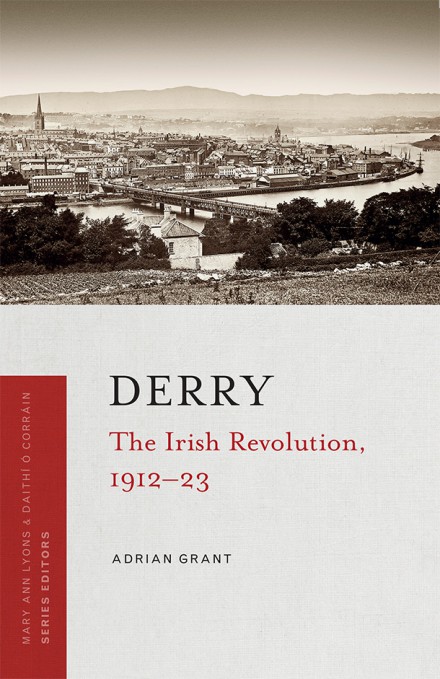Derry
The Irish Revolution, 1912–23
Adrian Grant
In 1912, Derry was a busy port city with a thriving textile industry. An important transport hub, it was also a city divided along confessional and political lines. The unionist establishment controlled local government despite the existence of a large Catholic nationalist majority, leading to charges of gerrymandering and discrimination. The onset of home rule increased tensions in 1912–14 as unionist power was challenged and nationalist confidence grew. Street violence in the city and county towns was accompanied by the mass mobilizations of the Ulster and Irish Volunteers, on a collision course only halted by the outbreak of war in Europe. After the Easter 1916 Rising, the spectre of partition re-emerged and became the principal issue of concern to nationalists of all shades. An upsurge in republican violence after 1919 was largely kept in check by the presence of a significant number of British army and police; moreover, half the population was loyal to the British state. North county Derry was largely unionist and saw little republican activity, while the south was the main centre of action until the IRA’s abortive Northern Offensive of 1922 and the exodus of republicans across the newly formed border. Meanwhile, the election of the first nationalist corporation in Derry city in 1920 kick-started a series of events that led to the worst sectarian violence in a generation. Based on newly released sources, this book makes a vital contribution to the historiography of Ulster during the revolutionary period.
Part of The Irish Revolution, 1912–23 series (Mary Ann Lyons & Daithí Ó Corráin, series editors)
Adrian Grant is a historical researcher at Ulster University and the author of Irish socialist republicanism, 1909–36 (Dublin, 2012).
